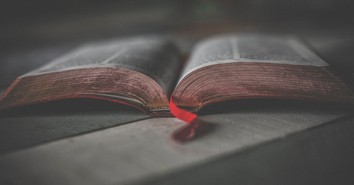FBI Analyzing Bombs Sent to Prominent Democrats

At least ten suspicious packages have been sent this week to prominent Democrats and critics of President Trump. None of the devices have exploded, and nobody has been hurt.
On Wednesday, authorities intercepted bombs intended for former President Barack Obama and Hillary Clinton. Suspicious packages were sent to Joe Biden and several other top political figures as well.
CNN’s New York bureau was evacuated after a package containing a bomb was discovered. The latest package was sent to actor Robert De Niro. The FBI is analyzing the packages at its laboratory in Quantico, Virginia.
“These terrorizing acts are despicable”
White House Press Secretary Sarah Sanders issued a statement condemning the attacks. “These terrorizing acts are despicable,” she said, describing the perpetrators as “cowards.”
She is exactly right. Such threats against political figures threaten us all. Whatever our political differences, we are the “United States.” Whatever our background and beliefs, we are all Americans.
The priority of solidarity is a lesson I see on display each time I travel in the Middle East. As I write today’s Daily Article from Jerusalem, I am looking from my hotel room at a city composed of Jews, Arab Muslims, Arab Christians, and dozens of other sects. I love visiting the Church of the Holy Sepulchre, where six different Christian traditions worship together.
But unity in the face of adversity is not enough to end all adversity. To solve our most persistent problems, we must admit another fact of solidarity, one that affects us all.
“Living among the once-flourishing idols”
In Matthew 8, a centurion asks Jesus to heal his paralyzed servant. Jesus replies, “I will come and heal him” (v. 7). The centurion replies: “Lord, I am not worthy to have you come under my roof” (v. 8).
This confession prompted a remarkable prayer by the late William Breault, a writer and artist in California:
Lord Christ, I wish I could offer you a reasonably clean and swept house to dwell in, but I can’t. I can say–and know the meaning of–“I am not worthy to have you come under my roof. . . .” But you are already there! Living among the once-flourishing idols. The floor is dirty and at times the room is airless–even for me!
I am ashamed of your presence there, yet you slept in a cave and on a donkey’s back at night under the desert stars. So, if I can’t change your accommodations, let me rejoice all the same that you are present.
To this point, Father Breault’s prayer assures me that if Jesus would make his home in the manger’s cave, he would make his home in me. This is a wonderful truth, but not a new thought.
“I don’t want to be a sinner!”
But, as Father Breault continues his prayer, he makes a statement that was a new insight for me:
I must believe strongly, Lord, that I can’t question this: that you are at home with sinners–and my greatest sin, Lord Christ, is that I don’t want to be a sinner!
When I read this statement, I immediately objected. How can my “greatest sin” be that “I don’t want to be a sinner”? It should be the opposite. I should want not to be a sinner, so my sins don’t continue to dishonor my Lord and damage my life and those I touch. In heaven, I will be a sinner no more (Revelation 21:27). I should want the same on earth, or so it seemed to me.
But the more I considered Father Breault’s prayer, the more I came to see its wisdom.
I am willing to admit that I commit sins, but I don’t want to admit that I’m a sinner. I don’t want to be a sinner because I don’t want to have to live in the kind of dependence on God that my sinful nature requires. I don’t want to have to be repentant, submitted, and humble.
In the words of Henley’s Invictus, I want to have an “unconquerable soul.” I want to be “the master of my fate” and “the captain of my soul.”
And such a desire for self-dependent, self-righteous freedom from God and man is indeed my “greatest sin.”
God is a perfect parent
Father Breault’s point is that we have no ability to sanctify ourselves. We must depend on God’s grace as much for our sanctification as for our salvation.
However, you and I face an opposite problem as well: we can so emphasize our Father’s saving grace that we overlook our role in our sanctification.
God is a perfect parent. No good parents love their children any less because they make mistakes. At the same time, all good parents expect their children to learn from their mistakes and grow as people.
That’s our heavenly Father’s expectation for us. When we accept our faults as permissible because we know they won’t change how he loves us, we disrespect him as our Father. And we forfeit our opportunity to experience the abundant life of Jesus today (John 10:10).
Our Lord wants us to admit our need for his Spirit’s transformational work, then practice the spiritual disciplines that position us to experience his grace. The result is that we become more like Jesus (Romans 8:29).
“To make us humble and make us watchful”
The bombs intended for Democratic Party leaders reveal the depravity of the human heart. They call us to renew our commitment to “speaking the truth in love” (Ephesians 4:15) with those who love us and those who do not (Matthew 5:44).
And they remind us that we need the power of Jesus to be like Jesus (Romans 8:29). We need the power of the Spirit to manifest the “fruit of the Spirit” (Galatians 5:22-23).
The more we admit that we are sinners and partner with God in our sanctification, the less we sin and the more we are transformed by his grace. And the more we share the hope of Jesus with our broken world.
Charles Spurgeon: “The truth that we are sinners is painfully with us to make us humble and make us watchful.”
Will you be humble and watchful today?
For more from the Denison Forum, please visit www.denisonforum.org.
The Daily Article Podcast is Here!
Publication Date: October 26, 2018
Photo Courtesy: Pope Moysuh/Unsplash






